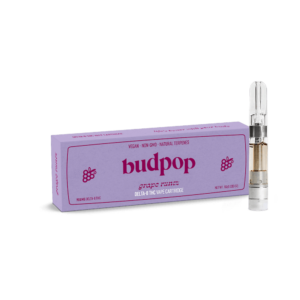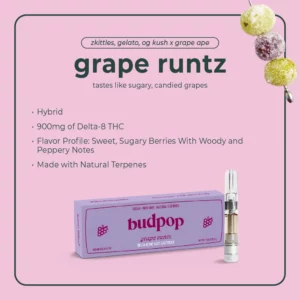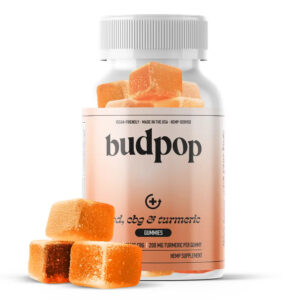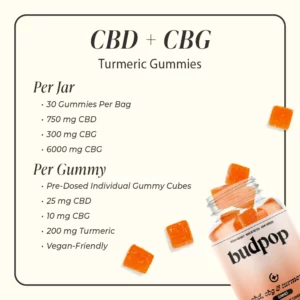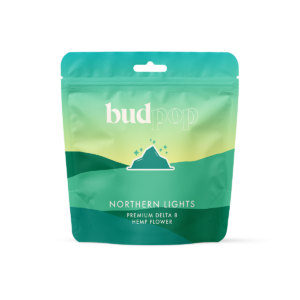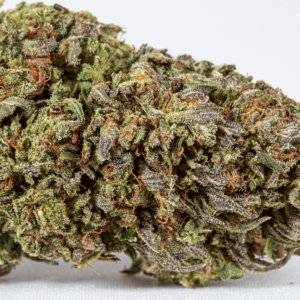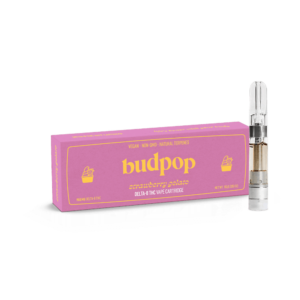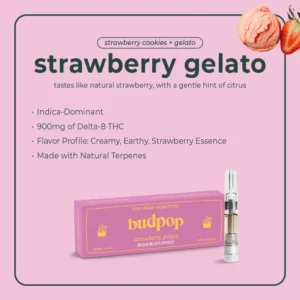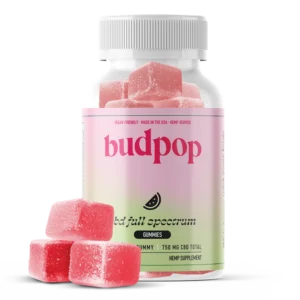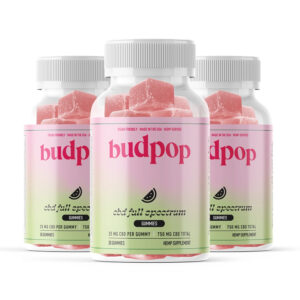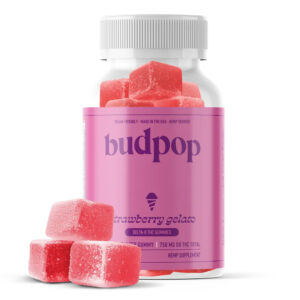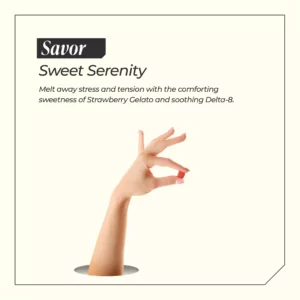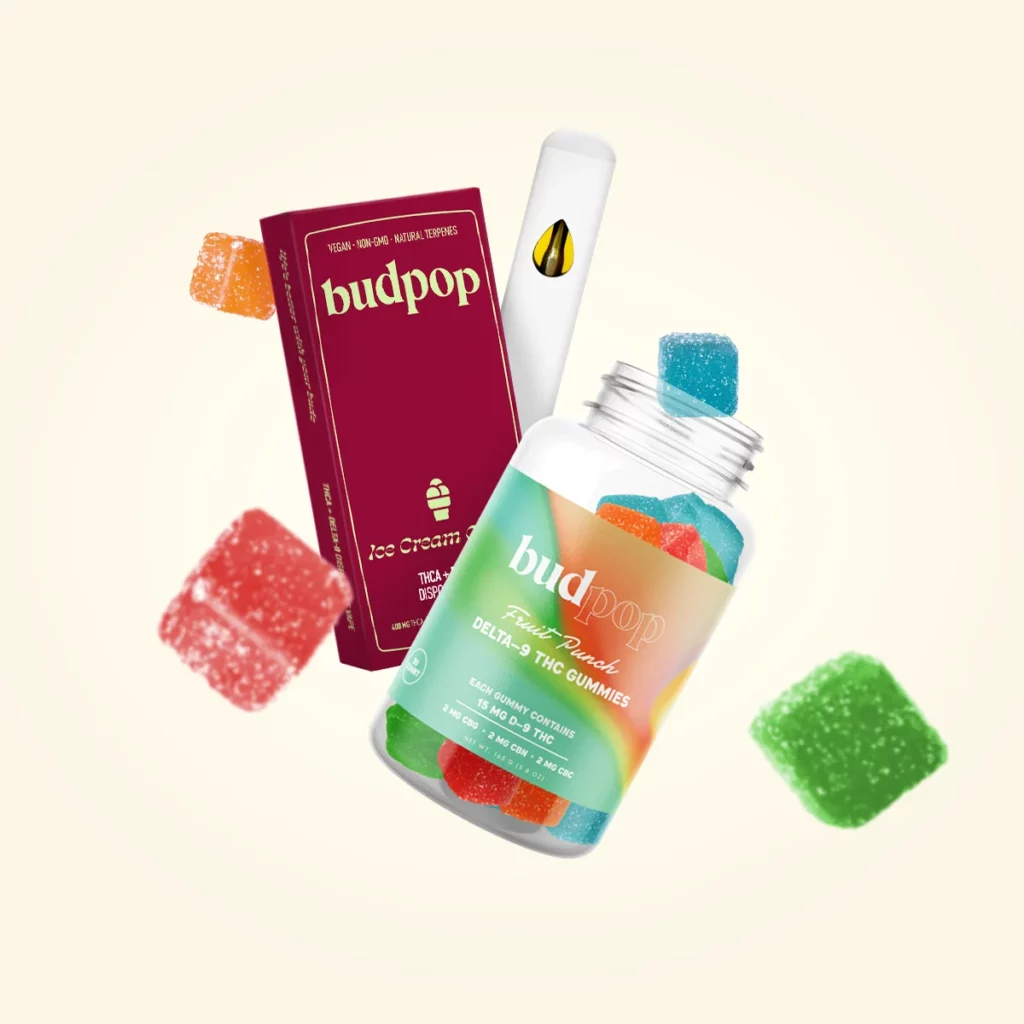The deeper you dive into the world of cannabis the more complex it becomes. THC and CBD are just the tip of the iceberg. Secondary cannabinoids, terpenes, flavonoids, and other factors all shape the way a strain will make you feel. By now you probably already know you can tailor your choice of strain to the specific effect you want, with cannabinoids playing a major role in the overall experience. Two we see commonly compared area THCa vs delta 9 THC.
So what’s the difference between THCa and delta 9? Is THCa better than delta 9? You’ve come to the right place. We’ll show you exactly where each has an edge over the other by comparing and contrasting delta 9 vs THCa below.
| Factor | THCa (Raw Form) | Delta 9 THC (Active Form) |
|---|---|---|
| Psychoactive Effects | Non-psychoactive in raw form; does not produce a high. | Psychoactive; responsible for the classic cannabis “high.” |
| Activation | Requires heat (decarboxylation) to convert into THC. | Already active; no heating required. |
| Therapeutic Potential | – Being studied for anti-inflammatory properties. – Possible neuroprotective effects (Alzheimer’s, Parkinson’s). – Some research suggests it may help with nausea and pain relief without psychoactive effects. | – Well-known for mood enhancement, relaxation, and euphoria. – Proven appetite stimulation (useful for chemotherapy-induced nausea). – Stronger pain relief potential due to its interaction with CB1 receptors. |
| Legal Status | Legal in more states if under 0.3% Delta 9 THC (Farm Bill compliant). | Federally illegal unless hemp-derived and under 0.3% THC; varies by state. |
| Ease of Access | Can often be purchased legally as hemp-derived THCa flower. | Requires dispensary access in states with legal cannabis markets. |
| Consumption Methods | Can be consumed raw (juice, capsules) or heated (smoking, vaping, cooking). | Commonly found in edibles, tinctures, vapes, and smokable flower. |
| Who It’s Best For | – Those looking for potential therapeutic benefits without intoxication. – People in states where THC products are restricted. – Users who want a legal alternative that converts into THC when smoked. | – Those seeking immediate psychoactive effects. – Users looking for stronger pain relief and appetite stimulation. – People in states where cannabis is legal for medical or recreational use. |
The truth is, though, this conversation can actually be really simple. When people refer to delta 9 THC, what they’re referring to is the classic form of THC you’ve come to know and love – the one that gets you high. For the sake of simplicity, you can just call it THC.
How does THCa fit in, then? It’s the raw, non-psychoactive version of THC that doesn’t produce any effects until it’s smoked, vaped, or otherwise decarboxylated (heated) like in tinctures and edibles. This converts it into – you guessed it – THC!
So ultimately, comparing THCa vs delta 9 THC is like comparing a match to a flame. THCa has the potential, but it needs heat to unlock its full effects.
Either way, BudPop has a great selection of delta 9 gummies for sale, THCa carts for sale, THCa flower for sale, and more! This is your one-stop shop for legal hemp-based cannabis products in the US. Learn more about the nuances between delta 9 vs THCa below.
What is THCa?
Let’s take a closer look at what THCa is, as this acidic form of good old THC is shrouded in misconceptions and confusion. It’s short for tetrahydrocannabinolic acid and is the raw, unheated form of THC found in freshly harvested cannabis.
That’s right – cannabis plants don’t actually have much THC content, if any. They’re packed with THCa, though. This non-psychoactive cannabinoid will not get you high on its own. As we’ll elaborate on below, it has to be heated to convert into THC – that’s where the magic happens.
So why bother with THCa? Well, it’s not hard for a user to take THCa flower or vapes and enjoy an authentic cannabis experience. Every puff on a cart or every spark of a bowl turns that THCa into THC.
But its psychoactive potential is just one piece of the puzzle. THCa in its raw form has shown therapeutic potential. Some early research suggests that it may have anti-inflammatory, neuroprotective, and anti-nausea properties.
The kicker here is that you can enjoy its healing potential without having to get high, as you would with delta 9 THC. You’d just consume the cannabinoid in its pure form through juices, tinctures, or capsules.
That being said, let’s introduce the other half of the delta 9 vs THCa conversation below.
What is Delta 9 THC?
Delta 9 THC, or tetrahydrocannabinol, is the main psychoactive compound in cannabis – the one responsible for the classic euphoric high. There’s really no need to call it delta 9 THC other than to differentiate it from delta 8 THC, which we’ll touch on later.
Delta 9 THC is already in its active form and ready to bind to cannabinoid receptors in the brain when consumed. This interaction with the endocannabinoid system (ECS) is how humans are able to feel cannabis, leading to effects such as:
- Euphoria and relaxation
- Increased sensory perception
- Appetite stimulation
- Potential pain relief and anti-nausea benefits
Delta 9 THC can be found in both marijuana and federally legal hemp-derived products, with the key difference being concentration levels.
Under the 2018 Farm Bill, hemp products can contain no more than 0.3% Delta 9 THC by dry weight. This is how you’re able to legally buy weed online these days.
Whether in edibles, vapes, tinctures, or flower, Delta 9 THC is the gold standard for a traditional cannabis experience. So why bother with THCa? Despite its lack of psychoactivity in its pure form, it still has its place. We’ll compare and contrast delta 9 vs THCa below.
THCa vs Delta 9 THC: What’s the Difference Between THCa and Delta 9?
So what’s the difference between THCa and delta 9? You should be starting to get a sense of where they vary. Ultimately, it comes down to what they do. One form won’t get you high on its own, while the other can.
But if we zoom out even further, the difference between THCa and delta 9 THC starts with their molecular structure. That “a” in THCa makes a massive difference!
Nuances in Chemical Structure
One small molecular detail shapes very different experiences between THCa vs delta 9 THC. The extra carboxyl group (COOH) in THCa prevents it from binding to CB1 receptors in the brain, which is where THC has to bind to produce psychoactive effects.
But this extra group falls off when THCa is heated (decarboxylated) and the transformation to delta 9 THC is complete. At this point it can interact with CB1 receptors and produce intoxicating effects.
Is THCa Stronger Than Delta 9?
This is a common question we see asked, and it’s a fairly loaded question. Because on its own, THCa is not stronger than delta 9 – it has zero potency whatsoever since you won’t be able to feel its effects until it’s converted to THC.
But once that conversion takes place, there’s basically a 1:1 ratio for THCa vs delta 9 THC. its potency will become fairly equal to traditional delta 9 THC products.
Say you smoke or vape THCa flower with 30% THCa. When you spark the bud or hit the pen, you’re basically getting 30% delta 9 THC. In this sense, it’s a bit of a wash.
Therapeutic Potential
Now, this is where see a more dramatic difference between THCa and delta 9 THC. They each bring something to the table but work in slightly different ways, as shown in the chart below:
| THCa (Raw Form) | Delta 9 THC (Active Form) |
|---|---|
| Being studied for its ability to reduce inflammation. | May help with inflammation but primarily used for pain relief. |
| Potential neuroprotective benefits for conditions like Alzheimer’s and Parkinson’s. | Less studied for neuroprotection but may offer cognitive relaxation effects. |
| Some research suggests it may help ease nausea without psychoactive effects. | Clinically proven to reduce nausea, especially for chemotherapy patients. |
| May offer mild pain relief without psychoactivity. | Stronger pain relief potential due to direct interaction with CB1 receptors. |
| Does not produce a high but may contribute to overall wellness. | Known for mood enhancement, relaxation, and euphoria. |
| Limited evidence on appetite effects. | Proven appetite stimulant (“the munchies”), useful for medical patients. |
There is some overlap between the two cannabinoids, but really it comes down to choosing based on the exact benefits you’re after. Do you want therapeutic effects without any sort of high? Raw THCa is the obvious choice.
Ease of Access and Legal Insights
To a certain extent, you may not have a choice between delta 9 vs THCa – it could come down to what you have at your disposal. Thankfully, the tide is turning, and cannabis as a whole is becoming more accessible nationwide. The Farm Bill passing in 2018 played a big part in this.
THCa is more accessible in most cases because it can be sold as a hemp product under the stipulations of this bill. As long as it remains in its raw state and tests under 0.3% Delta 9 THC by dry weight, you can purchase it in all 50 states (as long as you’re 21 or older).
On the other hand, delta 9 is a bit more restricted. If you live in a state that has legalized recreational cannabis use then this is a non-issue as there is a dispensary near you where you can find delta 9 THC products.
The good news? Even if you live in a state that still frowns on cannabis use, you can legally buy THC gummies online here at BudPop. More on that later on.
The Safety Side of Things
You should always put your personal health and wellness first in trying cannabis products – but thankfully, you don’t have to worry about safety between THCa vs delta 9 THC. Both are perfectly safe with 2 caveats:
- You shop with a trusted brand that tests for purity and potency, like BudPop.
- You use the product as intended, adhering closely to dosage guidelines.
If you’re still stressing, THCa in its raw form might be the better option since it delivers a therapeutic impact without any level of psychoactivity. In other words, you don’t have to worry about getting “too high.”
That’s really the only concern with delta 9 THC – overdoing it can lead to anxiety, dizziness, or paranoia, especially in new users. Just be aware that these unpleasant side effects can be easily avoided.
Cost Considerations
What’s the better bargain between delta 9 vs THCa? It all depends on what you’re buying and where you’re buying it. One isn’t necessarily more expensive than the other.
That being said, THCa flower is often cheaper than dispensary-grade Delta 9 flower because it’s sold as a hemp product. Similarly, delta 9 THC edibles, vapes, and concentrates may be more expensive in these dispensaries because of taxes and regulation costs.
So, Is THCa Better Than Delta 9?
That does it for our detailed comparison of delta 9 vs THCa – so is THCa better than delta 9, or is it the other way around? At this point, it should be clear. It all depends on your specific goals and preferences.
Technically speaking, we’re comparing the same thing if you plan on smoking or vaping cannabis. Any THCa is going to be converted to delta 9 THC. So in that sense, you can’t go wrong either way!
Quick Overview of Other Cannabinoids: Delta 8 THC, CBD, and More
We often see THCa vs delta 9 THC compared to other cannabinoids as well, like delta 8 THC (diet weed, as we like to call it), CBD, CBN, CBG, the list goes on and on. Here’s a super quick look at some of the most noteworthy cannabinoids you’ll encounter:
Delta 8 THC: Milder than Delta 9, offering a smooth, clear-headed high with reduced anxiety.
- CBD (Cannabidiol): Non-psychoactive; known for relaxation, anti-inflammatory properties, and stress relief.
- CBN (Cannabinol): Best known for promoting sleep and relaxation.
- CBG (Cannabigerol): Thought to support focus, gut health, and inflammation.
- CBC (Cannabichromene): Less studied but may have mood-enhancing and neuroprotective effects.
Each cannabinoid interacts with the body differently, shaping unique effects and benefits. We don’t want to get too carried away for the sake of wrapping things up on this THCa vs delta 9 THC comparison, but you should technically enjoy all of these cannabinoids simultaneously.
The entourage effect states that cannabis works best when you enjoy it as true to strain as possible – with cannabinoids, terpenes, and flavonoids all working in synergy to produce the most authentic experience. With that said, try both delta 9 THC and THCa at BudPop today!
Try Both Delta 9 THC and THCa at BudPop and See Which You Prefer!
Whether you’re looking for instant psychoactive effects or a versatile raw cannabinoid ready to have its potential tapped into, BudPop has you covered with premium gummies, vapes, flower, pre-rolls, and more!
Everything we sell is backed by a satisfaction guarantee and lab-tested for both potency and purity, so you can rest assured you’re getting the quality you deserve. And yes, it’s all 100% legal per the Farm Bill, too.
With fast, discreet shipping and world-class customer service, you won’t find a better online cannabis shopping experience. Find your new favorite self-care ritual today!
Bringing Our Comparison of Delta 9 vs THCa to a Close
Hopefully this THCa vs delta 9 THC comparison has left you with a clear understanding of how these cannabinoids are more connected than you may have initially thought.
THCa is the raw, non-psychoactive precursor, while Delta 9 THC delivers instant effects. So if you want a legal workaround with high potency, THCa is the perfect pick. You can buy it online and enjoy a genuine cannabis experience shipped to your doorstep, legally.
Want to learn more about the world of cannabis? Browse our blog for helpful resources such as:
Otherwise, it’s time to discover the difference between THCa and delta 9 THC firsthand at BudPop. From THCa flower to Delta 9 gummies, there’s something for everyone!
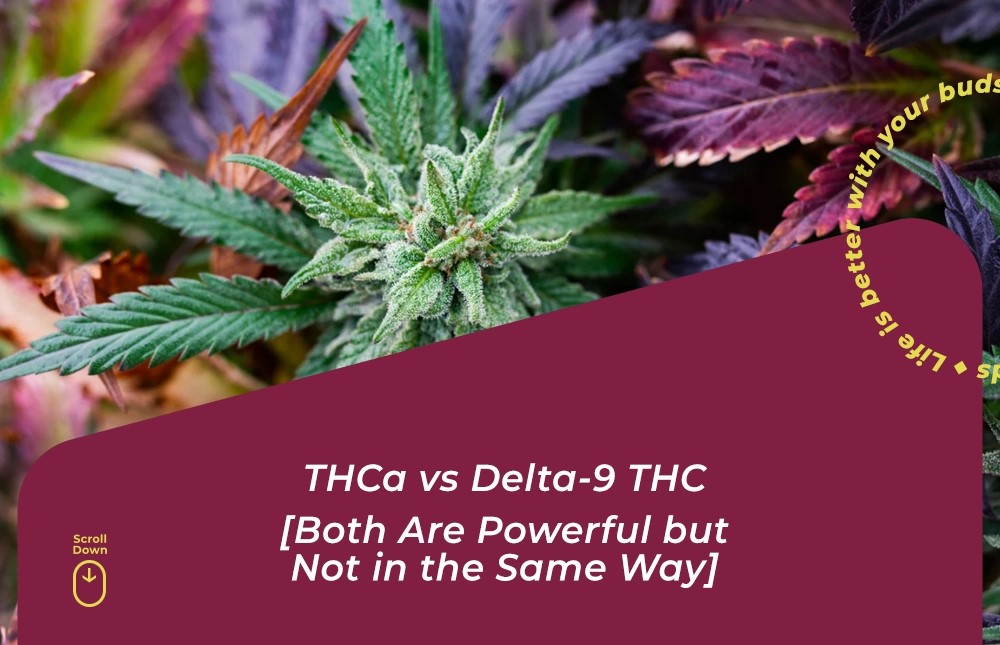
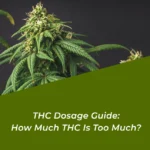
![THCa vs THC [Discover 7 Key Differences in Our In-Depth Guide] thca vs thc](https://budpop.com/wp-content/uploads/2025/04/budpop-blog-thumbail-07-150x150.png)
![Can You Fly With THCa? [Travel Tips & What TSA Won't Tell You] can you fly with thca](https://budpop.com/wp-content/uploads/2025/04/budpop-blog-thumbail-06-150x150.png)

![How Many THC Gummies Should I Eat? [THC Gummies Dosage Chart] how many thc gummies should i eat](https://budpop.com/wp-content/uploads/2025/02/how-many-thc-gummies-should-i-eat-150x150.jpg)

